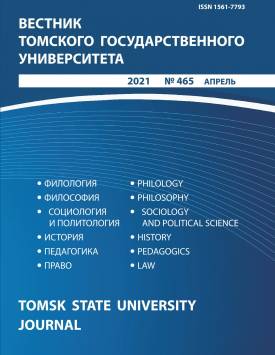Caucasus-Caspian and Central Asian Regions in the Global Geopolitical Confrontation
The need to study the issue of the energy potential of Caucasus-Caspian and Central Asian regions is due to the fact that their energy resources in modern conditions are a fundamental factor determining the international political significance and the place of these regions in the foreign policy strategies of the great powers. Of particular political interest is the water area of the Caspian Sea, on the shelf of which oil and gas reserves are located. Thus, in Caucasus-Caspian region, 7% of the world's natural gas reserves and 19% of the world's oil reserves are concentrated. Currently, the problem of the separation of the Caspian Sea shelf is relevant for this region. The unresolved territorial disputes in the future may lead to foreign policy conflicts; therefore, political leaders of Caspian countries need to consolidate efforts to ensure the energy security of the region. The aim of the article is to systematize and generalize approaches to determining and assessing the energy potential of Caucasus-Caspian and Central Asian regions and its components. The problems related to the presence of potential territorial conflicts in Caucasus-Caspian region, which can undermine the energy security of this region, are analyzed. The theoretical and methodological foundations of the study are the ideas of S.Zh. Zhizhnev, S.S. Zhiltsov, I.S. Rozhkov on the problems of cooperation between the countries of Caucasus-Caspian and Central Asian regions in the context of energy security. In the study of the energy potential of Caucasus-Caspian and Central Asian regions, institutional, system-structural and dialectic methods were used to highlight its general and special features. The definitions of the concept “energy potential” are classified into three groups: 1) the potential consumption of diverse energy; 2) the potential aggregate of energy that can be used by a business entity; 3) a component of the production or resource potential. The significance of the study lies in assessing the energy potential of Caucasus-Caspian and Central Asian regions. The energy development of the regions is possible with the internal consolidation and development of an independent foreign policy by the countries of the Caucasus and Central Asia, the search for economic and political means of ensuring stability, and the expansion of transport links between the countries.
Keywords
foreign policy, cooperation, energy security, Central Asian region, Caucasus-Caspian regionAuthors
| Name | Organization | |
| Bazyleva Sabrina P. | Peoples' Friendship University of Russia | sabrinca@inbox.ru |
| Fantrov Pavel P. | Volgograd State University | pavelfantrov@volsu.ru |
| Petrov Viktor P. | Peoples' Friendship University of Russia | tunguska81@gmail.com |
References

Caucasus-Caspian and Central Asian Regions in the Global Geopolitical Confrontation | Vestnik Tomskogo gosudarstvennogo universiteta – Tomsk State University Journal. 2021. № 465. DOI: 10.17223/15617793/465/9
